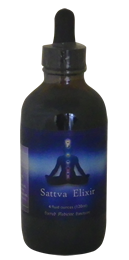Tough Act to Follow |
m | ||||||||
Posted to Subscribers on 17 July 2009 |
|||||||||
|
|
Dear Subscribers, Here we go. "Soul Mates" appears to have bombed. As expected, someone with Sirius exactly on the ascendent resonated with the post but no one else seems to have felt similarly. The post also had the lowest readership of any in recent months so I checked to see which posts had the highest. I was astonished to find that "Desertification" topped the list in the 30 most recent posts. I am so happy to hear that, but today's post is going to be totally unnerving. A dear, dear correspondent sent a link to this excellent but macabre video. Ed Yong is a tough act to follow but he does set the stage well for helping me to clarify how I formulate and why. I would actually urge you to watch the video before reading the rest of this post. His language is evocative and entertaining but what he says won't help you to sleep better. However, I was so intrigued by his style and inferences that I watched the video twice when first sent the link and again just now before writing. Commentary Hopefully you have now watched the video. Yong begins by suggesting that parasites control their hosts. I have actually read this in veterinary texts on parasites and mentioned it in posts. Sometimes figures are provided that suggest that parasites control 60% of the hormonal production of their hosts. What exactly does this mean? I hope my years of posting about chakras and their relationship to endocrine glands will help you to understand exactly what this means. Each person is in fact a soul who is also an architect who has created an incarnational vehicle that allows the soul to express itself through the body. Poets might need different sensitivities than engineers. People who want to have families might have different hormones from those who cherish their freedom. Each chakra has a certain dimension and rate of rotation that is specific for the incarnating soul. The chakras have perfect correlations to the endocrine glands so when they spin, the corresponding endocrine gland secretes hormones. This is what determines our chemistry because the hormones stimulate or inhibit through their actions on different parts of our body. What happens when there are interferences is that we truly cannot be ourselves. This is why I have used such strong language when referring to artificial hormones. In one email more than a decade ago, I used the word "reprehensible" and someone suggested I tone it down a bit, but I cannot because meddling with our ideal structures violates the uniqueness of our beings. We cannot be ourselves if we are gorged with animal hormones and strange drugs that cause us to have feelings that are not even our own. So, what Yong goes on to say is that parasites "subvert" their hosts. What exactly does this mean? It means that even if we rigorously avoid hormone-laced food and drugs, we are still potentially at risk of being manipulated by parasites, creatures with their own agendas, not ours. Textbooks describe various families of parasites, categories that make classification of parasites possible, but the fact is that except for a few quite well-studied parasites such as the ones causing tropical illnesses, parasites are, as Yong suggests, largely overlooked. We overlook them at our peril. Now, I want to slow down a bit because Yong managed to say a lot in his 13 minutes, but I like to provide a variety of contexts for comprehending realities that most of us would prefer to ignore. I have seen parasites in the blood of nearly every patient whose blood I examined. Okay, they were patients, not just your average healthy college student used as a control for a study, but it was a rare person who did not have parasites. Worse, as we must now expect, some of the most heavily infected patients were those with brain cancer, and I found these, unfortunately, in very small children as well as much older persons. I will never forget finding my first parasite nor will I ever forget the various behaviors I observed when I was fortunate enough to be in Europe where I could make these observations in proper clinical settings. Now, I will jump from this statement to another, not anything new to those who actually study my posts, but this time the dots connect in just a slightly different way. When reading about the preparations for kaya kalpa, the Ayurvedic rejuvenation strategy that I am still researching, there is a point right before the rejuvenation starts in which very strong antiparasitic herbs are given. They are administered so aggressively that the person basically turns inside out and parasites are spewed all over the floor of the room that is to be used for kalpa. Yes, of course, I was grossed out as anyone else would also be, but the point was clear: the parasites pose an obstacle to the task at hand. Why? We must ask why or we are missing the fine points. Textbooks are sometimes totally idiotic. They describe parasites as commensal. It means, you eat, they come to the table to join you, and you argue about who has first dibs on your dinner. Well, if you are really commensal, it means you are being hospitable and putting a knife and fork on the table for the parasites as well. The fools writing these senseless tales seem to believe that the parasites are usually harmless, but if the parasites are alerted by olfactory sensations, they might get to the table pretty fast and leave their hosts still hungry even after ingesting a huge meal. We have all seen pictures of African children with swollen bellies and sores on their skin. I have a simple solution but have been unable to interest anyone in production and marketing of this. This is however only what they do write in textbooks. What they do not write is much scarier, but I want to roll forward to the next piece of the puzzle because it provides hope where there is terror. Nearly all the herbs used in Ayurveda for treating mental disorders or inducing states of mental clarity or even insight are not just herbs used in remediation, but they have some antiparasitic properties as well. They also, of course, cross the blood-brain barrier which is what we need since parasites go where the food is. I.e., they might go to stomach when dinner is served but when the stomach is empty, they travel around and often go to the brain which is mushy, a terrain that suits them well. Being alive, parasites have metabolic processes so when they take a dump, ugh. It looks really ghastly in live blood microscopy and if your mind allows your imagination to go where it wills, you will definitely not feel hospitable any longer towards these commensal creatures. Okay, so they have all the foraging and protective functions we expect of creatures who are trying to survive in a complex world. I have discussed this many times by drawing comparisons between snakes and parasites. Just as there are boa constrictors and cobras and pythons, there are miniature versions of these in parasitic forms, some with dreadful toxins and others with different hunting methods. Whenever there are metabolic wastes or toxins, there is a risk of neurological damage and this is why the herbs must be antiparasitic as well as neuroregenerative. Once one has gotten through the worst of the treatment, the rest is delightful. As I have said in the past, when the parasites die, there are corpses floating around inside the body. Normally, bacteria will eat the dead parasites but if there are no bacteria — because of antibiotics or pharmaceuticals or fluoridated water — the parasites are broken down by yeast infections. This is, of course, a problem because yeast is also viable. In any event, we have to get rid of the parasites, and if I want to climb up on my soap box, I would say that "delusional parasitosis" ought to be the label affixed to anyone who thinks that parasites could not possibly be the cause of his or her suffering. These people are either misinformed or in denial. So, to try to keep a complex matter as simple as possible, let's ask what the steps are that can and should be taken. First, one has to eliminate the parasites. There are gradual as well as more aggressive methods, but anyone with a heavy load will probably have some very uncomfortable days. Treatment may also need to be continued for months since the parasites lay eggs, the eggs hatch, and young parasites appear even after the adults are gone. This can and sometimes does go on for years because most people are at risk of reinfection since whatever the source of the first infection, it is probably associated with a life style that makes reinfection a probability. Since we can acquire the infections in so many different ways, we should not beat up on ourselves for failing to take proper protection. Infections can occur through food, intimacy, and insect bites. They can also be acquired by gardening or sometimes handling something that was touched by an infected person. None of us are so insulated from risks that we can safely say that only others could be infected, not oneself. Once the main burden of parasites has been reduced, there are regenerative measures that are appropriate. Parasites can burrow through tissue and the body can lay down calcium walls to protect itself from leakage. The processes involved are very complex so we need different protocols for each step.
Yesterday, I shipped the first bottles Sattva Elixir; Yin and Yang went out today, and cannot wait for feedback. Meanwhile, for the last several weeks, I have been trying the Sattva formula on myself. I take it before dinner and again one or two more times before bedtime. Life has been very stressful, hugely stressful for me lately, but I am feeling more and more peaceful which means that it is possible to recover self, a trophy not to be underestimated by anyone. I am not suggesting that I had parasites, merely that the purpose of the Sattva formula is to support deep calmness. It does have antiparasitic herbs as well as shilajit for nutrients and stamina, and neurological herbs that reduce feelings of anxiety and nervousness and promote neuroregeneration, not to mention memory. I believe that at my age it makes sense to continue use of these forever, maybe not always the same formula but there will always be one part of us that can use some help. For me, herbs are friends and teachers so I always learn a lot by trying them out on myself. Then, I wait to hear from others. Please watch the video! You owe it to yourself. Blessings, Ingrid
|
||||||||
Home || Contact Us |
|||||||||
No content on any of the pages of this web site may be reproduced without written permission of Ingrid Naiman and Seventh Ray Press, publisher of this site. |
|||||||||
|
|||||||||

